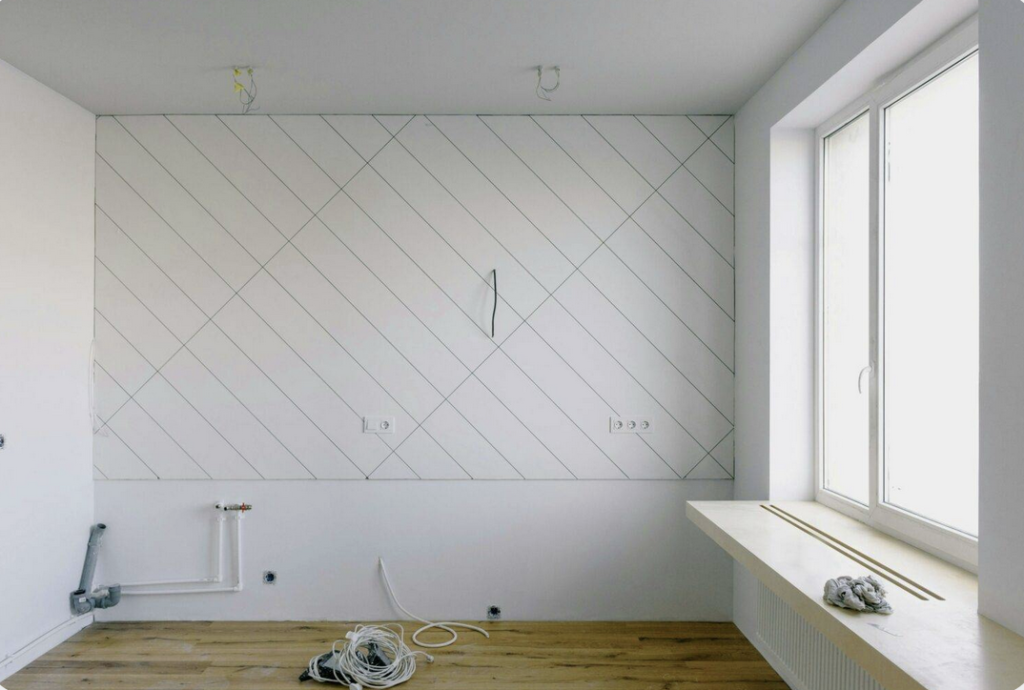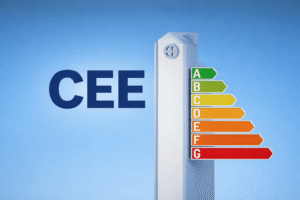Introduction
Do you dream of transforming an old Andalusian finca into a modern haven of peace or increasing the profitability of your student rental in the heart of Valencia? Real estate renovation in Spain can be an exciting and profitable adventure. But beware of the pitfalls: building permits, hidden costs, etc.: many challenges await you. Discover in this practical guide our expert advice to carry out your project easily and without unpleasant surprises, from the budget to the supervision of the works.
The potential of real estate renovation in Spain
Approximately 25% of homes in Spain are over 40 years old, which means that a significant portion of the housing stock requires modernization or rehabilitation work. The ground is fertile for investors, the potential considerable.
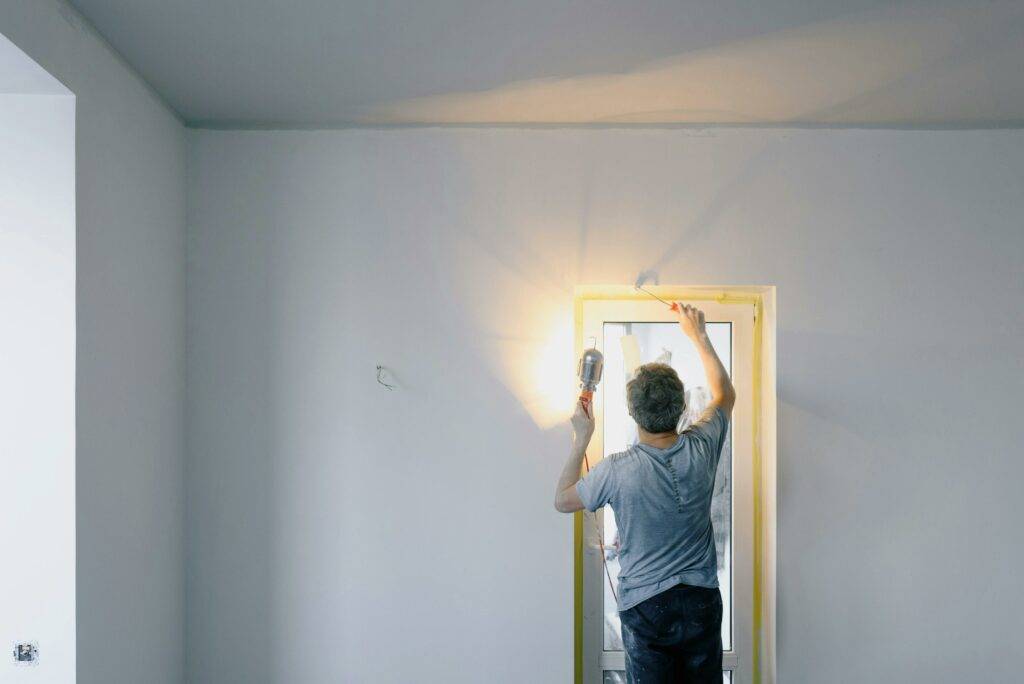
Terreta Spain offers comprehensive support, from estimation to completion of the works. Contact us.
Why opt for renovation in Spain?
- Real estate renovation in Spain offers many significant advantages, including a substantial increase in the property value, with an average increase in the sale price of more than 30% for renovated apartments.
- It also allows to preserve the unique character and charm of old Spanish properties while modernizing them.
- But also to improve the energy efficiency of the property, a key aspect in Spain where the construction sector represents 31.6% of the country's final energy consumption. We will come back to this.
- Renovated apartments sell faster than others. Buyers prefer turnkey properties. Some seasoned investors, aware of the opportunities in the Spanish market, are even turning to express buy-sell to maximize the return on their investment in record time.
- Last advantage: it is cheaper than in France.
What is the cost of labor for a real estate renovation in Spain?
One of the main advantages of real estate renovation in Spain lies in the cost of labor, which is significantly lower than that in France. On average, the hourly cost of labor in Spain is €25 excluding VAT, compared to a range of €35 to €65 excluding VAT in France. This difference allows for substantial savings on the overall project budget.
What is the price of construction work in Spain?
- The average cost of a renovation in Spain is around €28,000, a figure which is also lower than the French average (€60,000 for a standard renovation).
- For a property with a surface area of 100 m², the renovation budget is generally between €30,000 and €50,000, a boon for investors.
- The price per square meter generally ranges from €400 to €900 per square meter, depending on the scale and nature of the project.
- Please note that in recent years, quotes have increased by more than 20%.
What is the price of construction materials in Spain?
Recently, in Spain, the prices of materials have increased, due to the pandemic and inflation. In February 2024, the construction cost index reached a record level, the highest since records began in 2005. Although the upward trend stabilized somewhat in 2023, prices remain significantly higher than pre-pandemic levels.
The materials most impacted are:
- Ceramics (+52% in the last 10 years)
- Cement (+49%)
- Aluminum (+48%)
- Wood (+32%)
- Glass (+31%)
Despite these increases, materials remain cheaper on the other side of the border.
Real estate renovation increases the rental potential of a property
In Spain, a country where the seasonal rental market and student co-living are particularly dynamic, a renovated property can see its rental potential and return significantly improved.
A tenant will, in fact, be quite willing to pay a higher rent if the quality of services and comfort are up to par. Furthermore, tenants willing to pay a rent slightly higher than the average are generally reliable tenants who take care of their accommodation. An advantage for the owner and guaranteed savings.
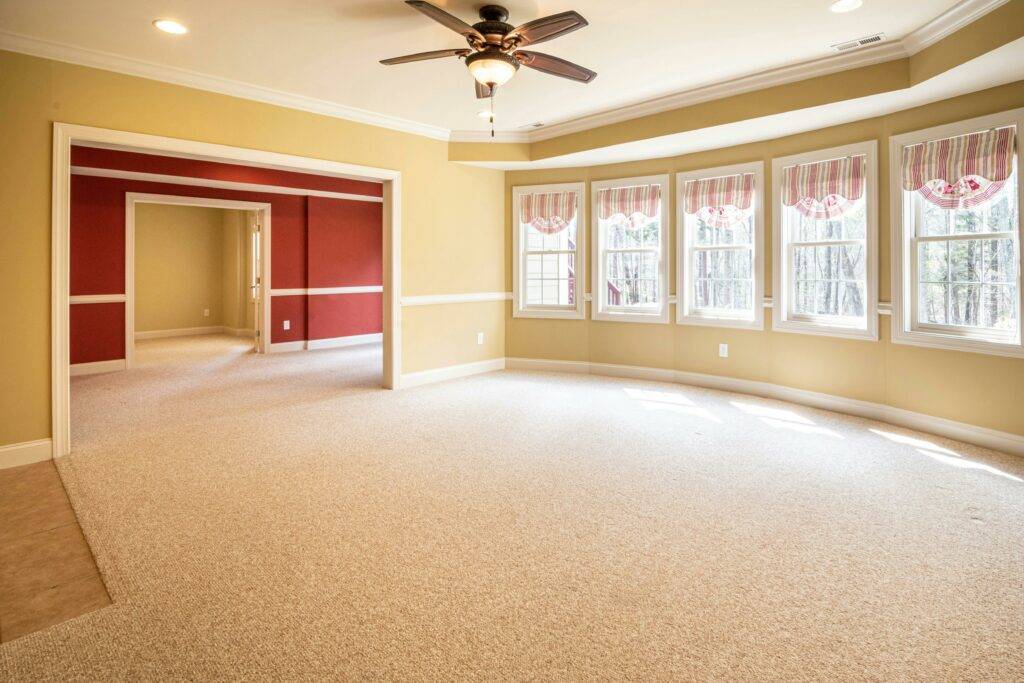
The context of the real estate renovation market in Spain
Renovation in Spain, a booming sector
Since the 2020 pandemic, the real estate renovation sector in Spain has been booming. Why?
- Because successive lockdowns have made us realize that it is important to feel good at home.
- Because improving the energy efficiency of homes has become necessary and unavoidable.
- Because foreigners, whose purchasing power is often greater than that of Spanish buyers, bought more than 15% of the available properties in 2023 and did not hesitate to carry out work.
- Because tourist rentals have exploded, and with them, the need to carry out work to satisfy travelers.
The most common types of real estate renovation in Spain
Real estate renovation projects in Spain cover a wide range of works, including:
- The modernization of kitchens and bathrooms, which is very popular for increasing the rental value of properties.
- That of the bedrooms, when the apartment is intended for student co-living.
- Improving energy efficiency (insulation, window replacement, installation of less energy-intensive heating and air conditioning systems).
- The complete renovation of old properties, particularly in the historic centers of cities and for properties intended for tourist rentals.
- The development of outdoor spaces, such as terraces and gardens, which are highly valued on the Spanish market.

Terreta Spain can assist you from the estimation to the completion of your renovation work in Spain. Contact us.
Regulations, licenses and building permits in Spain
An essential point to keep in mind: never embark on a real estate renovation project in Spain without consulting your co-ownership and without contacting an architect. You would be taking a big risk.
What are the local regulations for real estate renovations in Spain?
In Spain, each locality and municipality has its own regulations regarding renovation work. For example:
- Catalonia: in Barcelona, strict rules govern the conservation of architectural heritage. Renovations often require specific permits, and technical inspections are mandatory for old buildings. The regulations aim to preserve the historical architecture and guarantee the sustainability of constructions.
- Andalusia: on the other hand, in Andalusia, the rules may be more flexible. Minor renovations may require fewer administrative formalities, and the deadlines for obtaining permits are often shorter, which promotes a faster renovation process.
Before embarking on a renovation project, our experts inquire about the specific regulations of the autonomous community concerned. Get in touch with them.
What are the different building permits in Spain?
Two main types of permits are required for renovation work in Spain:
- Licencia de Obra Menor: for minor works that do not modify the structure of the building. Please note that once issued, this permit is only valid for 3 months;
- Licencia de Obra Mayor: for major renovations affecting the structure or exterior appearance of the building and which require the presentation of detailed plans drawn up by an approved architect.
How much do building permits cost in Spain?
- It is generally estimated that the price of a building permit in Spain is less than 300 euros, i.e. 3 to 3.5% of the estimated amount of the work.
- File processing fees are added, varying according to the municipalities.
What are the procedures for obtaining building permits in Spain?
- The permit application is made to the town hall (ayuntamiento) and upon presentation of a Proyecto de Reforma (the renovation project) signed by an architect for significant renovations.
- The time to obtain a permit varies from 1 to 3 months for the Licencia de Obra Menor and can extend to 6-8 months for the Licencia de Obra Mayor. However, this depends on the complexity of the project and the municipality.
What are the risks of carrying out renovation work without a permit?
If you do not follow the procedures, you risk paying a fine (from 600 to 1000 euros for small jobs) or forced demolition.
Furthermore, it is important to note that undeclared work can lead to difficulties when reselling the property (complicated transaction, drop in property value). In other words: do not try to circumvent the rules. You will pay dearly for it.

Energy renovation in Spain
Where does Spain stand on energy renovation?
Did you know that 80% of homes in Spain do not meet the European Union's strict energy standards? Following the new legislation in force, by 2033, all homes sold or rented must achieve a minimum energy certificate of class D. Faced with this challenge, energy renovation is not only becoming a necessity, but also a promising investment opportunity.
When planning your renovation, make sure your project complies with the new regulations. This may include:
- Thermal insulation of walls, roofs and windows
- The installation of energy-efficient heating and air conditioning systems.
- The use of sustainable and ecological materials.
Terreta Spain can assist you with your energy renovation in Spain. Contact us.
The energy efficiency certificate in Spain
In Spain, the energy performance certificate (Certificado de Eficiencia Energética, CEE):
- Has been mandatory for the sale or rental of real estate since 2013.
- Evaluates insulation, ventilation, air conditioning and hot water production.
- Provides recommendations for improvements and their estimated costs.
In 2024, unlike in France, asbestos and lead diagnostics are still not mandatory in Spain.
How much does energy renovation work cost in Spain?
The average cost of energy improvement work for a 100 m² apartment is estimated at around 12,000 euros. Nevertheless, these investments will pay for themselves in the long term. Indeed, owners can count on:
- Potential savings of 1,000 euros per year on energy bills.
- An average property revaluation of around 30%, as we said above.
Aid and incentives for energy renovation in Spain
As in France, to encourage energy renovation, the Spanish government has implemented several measures:
- Subsidies that can reduce the cost of insulation work by up to 40%.
- Tax deductions for investments in improving energy efficiency.
- Access to tax benefits on residents' income tax for energy renovation work.
Tax advantages of energy renovation in Spain
Here's what resident owners in Spain who improve the energy performance of their property can claim:
- Tax reduction of 20% granted for renovations that lower heating or air conditioning needs by 7% (note that it is capped at €5,000 per property).
- Tax benefit of 40% for improvements that reduce the use of non-renewable energy by 30% (maximum of €7,500).
- Tax relief of 60% for homes that reduce their consumption of non-renewable energy by 30% (limited to €15,000).
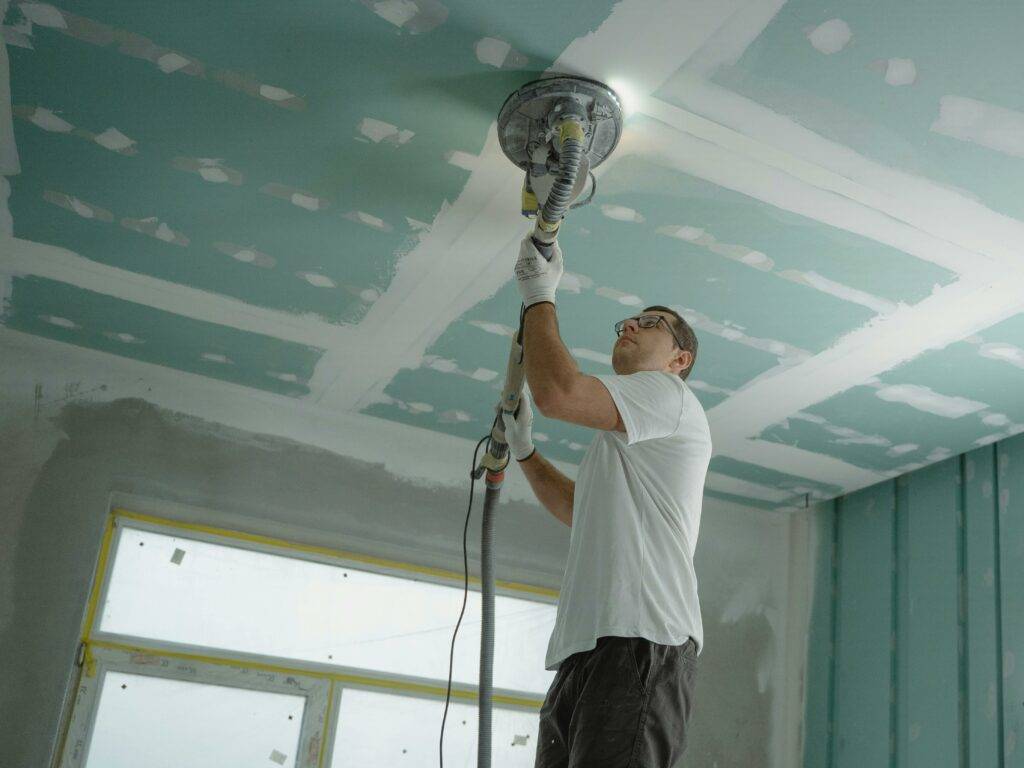
Practical aspects of property renovation in Spain
Renovation timeframes in Spain
The average time for a complete renovation in Spain is around 3 to 4 months for a 100 m² property. However, this timeframe can vary considerably depending on the scale of the work, the complexity of the project and the region in which the property is located.
How to choose your contractor in Spain?
How to choose your construction professionals?
- By requesting several detailed quotes.
- By verifying that the company is certified and insured.
Our advice for organizing your property renovation in Spain and optimizing your budget
Careful planning of the work
Careful planning is the key to a successful renovation:
- Start by establishing a detailed plan for your work. Clearly define your objectives and priorities.
- Obtain all necessary permits before starting work. Permit processing times can be lengthy, as we mentioned.
- Ensure the availability of materials before starting work, and explore the use of prefabricated and durable materials to reduce costs and increase the energy efficiency of your property.
- You can also keep an eye out for promotions and clearance sales on materials and equipment at Bahaus or Leroy Merlin, two leading renovation and construction retailers in Spain.
- Establish a clear schedule with your contractors to monitor the progress of the work.
Hire an expert to monitor your construction site in Spain
This is our most important piece of advice. Even if it seems like an additional cost, hiring a local professional to oversee your project is a wise, even necessary, investment. An expert in the Spanish market can help you:
- Navigating local administrative procedures.
- Communicating effectively with tradespeople and suppliers.
- Managing unforeseen events and meeting deadlines.
- Ensuring the compliance of the works with local regulations.
Terreta Spain offers comprehensive support, from the initial estimate to the completion of your renovation work in Spain. Contact us.
What are the main challenges of property renovation in Spain?
The challenges of property renovation in Spain are numerous:
- Lack of knowledge of local regulations.
- The complexity of the procedures for obtaining the necessary permits and authorizations.
- The difficulty in supervising the work for non-resident owners.
- Underestimating the budget.
- The linguistic and cultural barrier, which hinders communication with local tradespeople and suppliers.
- Lack of knowledge of specific technical constraints, such as adapting to local climatic conditions (heat, humidity, salt spray for coastal properties).
To overcome these challenges, it is recommended to gather information beforehand, surround yourself with experienced local professionals, plan a realistic budget with a margin for unforeseen events, and be patient with administrative procedures.
Knowing the hidden costs of your renovation work in Spain
What additional costs should be anticipated for a property renovation in Spain?
- Building permit fees (3% to 3.5% of the amount of the works).
- Architect's fees: approximately 10% of the total cost of the works for major projects (they are mandatory if you obtain a licencia de obra mayor).
- The reserve fund of 10% to 20% of the total budget for unforeseen expenses.
- Fees for occupying public space: €5 per day if you install a skip in front of your building.
- Costs and taxes associated with permits, such as the payment of a tax that applies to the city's urban planning services (Tasa por Actuaciones Urbanísticas: approximately €150 for less than €6,000 of work, and up to €1,000 for major works) and the municipal tax on construction, installations and works (ICIO), the tax rate of which varies between 0.5% and 4% of the cost of the works.
- The risk of significant penalties: fines ranging from 600 to 1000 euros for minor works without a permit.
- Project management fees, especially if you do not live locally.
- Temporary accommodation costs if needed.
- Compliance costs that may be mandatory during certain renovations.
- Specific insurance policies to cover risks associated with the works
Conclusion
Real estate renovation in Spain offers interesting prospects for investors but requires rigorous preparation. The key to success lies in understanding local regulations and using industry experts. A well-structured approach, considering regional specificities, can transform your project into a profitable and rewarding investment.
Sources: Idealista, Proalt, Synergyinsurance, Five, CaixaBank Research, Camif Habitat
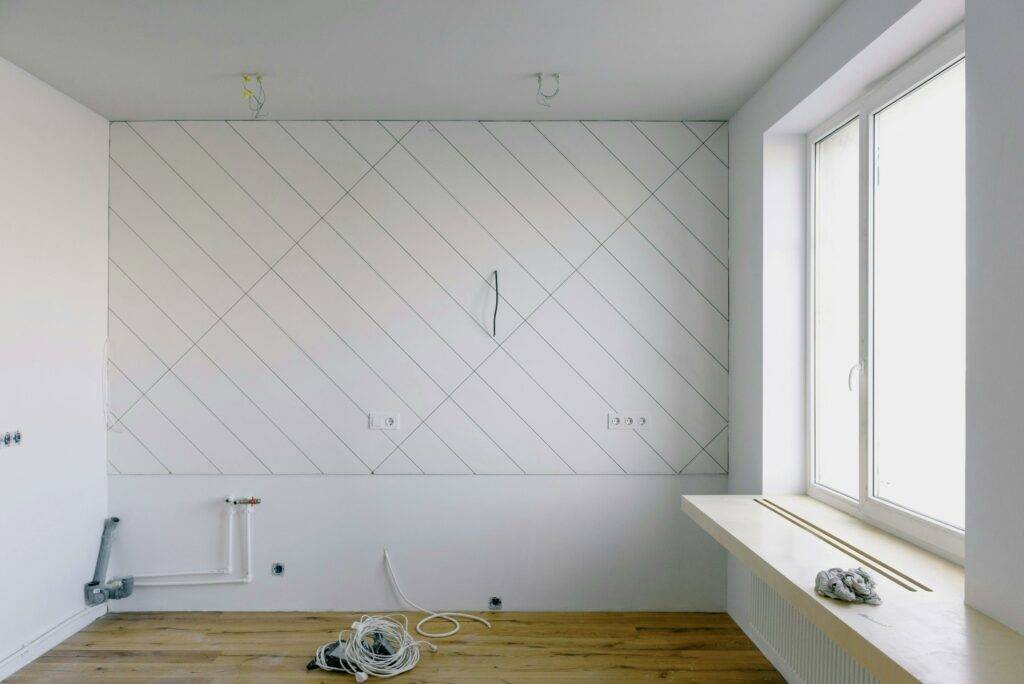
FAQ: All you need to know about real estate renovation in Spain
What permits are required to renovate a property in Spain?
There are two main types of permits:
Licencia de Obra Menor: for minor works that do not affect the structure or facade of the building. Allow approximately 1 to 3 months to obtain it. It is valid for a period of 3 months.
Licencia de Obra Mayor: required for major works modifying the structure of the building or its facade. This permit can take a long time to obtain: between 3 and 8 months, depending on the region and complexity of the project. Even longer for listed or protected buildings.
What are the renovation costs in Spain?
Renovation costs in Spain are relatively affordable compared to France:
Light work is estimated at €400/m², while more complex renovations with high-end materials can reach €900/m². It is recommended to allow a safety margin of 10 to 20% for unforeseen events.
How do I obtain a renovation license in Spain?
To obtain a renovation license, you will need to submit a renovation project (Proyecto de Reforma) drafted by an architect to the town hall (ayuntamiento). A complete file including plans, budget estimate, and technical details will be required.
What are the penalties for renovating without a permit?
If you undertake work without the necessary permits, you risk fines ranging from €600 to €1000 for minor work. For more serious or recurring offenses, more severe penalties may be applied, including stopping the work or demolition.
What are the tax advantages linked to renovation work?
Certain renovations, particularly those aimed at improving the energy efficiency of buildings, may qualify for tax deductions.
What are the average lead times for a complete renovation?
In Spain, a complete renovation can last between 3 and 4 months for a 100 m² property, depending on the nature of the work and the region where the property is located. However, this period may vary depending on authorizations and unforeseen events.
How to find trustworthy professionals for your renovation?
It is recommended to get multiple quotes and use experienced local professionals. Check references and make sure that the companies chosen are certified and insured. Hiring an architect to oversee the project is a good option, especially if you are not on site.
Is the agreement of the homeowners' association required to renovate a property?
Yes, in Spain, the agreement of the homeowners' association is essential before submitting your permit application to the town hall. This agreement is required for work affecting common areas (such as facades, terraces, or balconies), but also for minor work.

